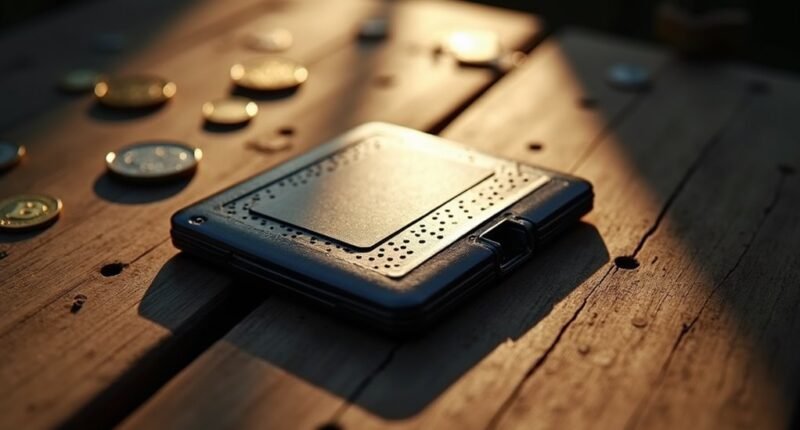In the ever-evolving world of cryptocurrency, securing one’s digital assets is essential—like locking the door to a treasure chest full of gold coins. With so many wallet options available, it can feel like choosing a safety deposit box for your fortune in a magical land of digital dragons.
There are two main types of wallets: custodial and non-custodial. Custodial wallets hold the private keys for you, which is convenient but leaves you at the mercy of the provider. Non-custodial wallets, on the other hand, let you keep your keys, giving you full control—like being the only one with the key to your treasure chest.
Choosing between custodial and non-custodial wallets is like deciding who holds the key to your treasure chest.
Hot wallets are like the friendly neighborhood coffee shop—always accessible and connected to the internet, but a little more prone to theft. Cold wallets, such as hardware wallets like Ledger and Trezor, operate offline, providing better security for long-term storage. Think of them as a safe buried deep underground, away from prying eyes. Utilizing a hardware wallet is recommended for secure storage of private keys. Cold wallets offer superior security for long-term storage and are ideal for users looking to hold assets securely over time. Additionally, hardware wallets provide a robust defense against unauthorized access, making them a popular choice among serious investors.
While software wallets offer convenience, they come with risks, like leaving your front door slightly ajar. For those who prefer a tech-savvy approach, advanced security features like multi-party computation (MPC) and biometric authentication are available. These add layers of protection, almost like having a bodyguard who checks your ID and fingerprints at the door. Regular updates are vital, too—like keeping your antivirus software fresh to fend off the digital gremlins lurking in the shadows.
However, the crypto landscape is riddled with pitfalls. Phishing scams and malware attacks are the modern-day equivalent of pirates trying to board your ship. Physical theft and seed phrase exposure can lead to devastating losses, so strong passwords and two-factor authentication are your best mates in this digital ocean.
Ultimately, selecting a secure wallet boils down to choosing a provider with a solid reputation and user-friendly features. In the thrilling world of cryptocurrency, making informed choices is the key to keeping your treasure safe.









